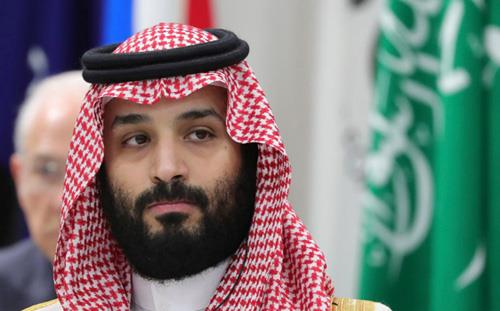
Two stories, two perspectives.
Saudi Arabia announced just this past weekend that it’s now open for tourism — a first. Don’t laugh. The kingdom is home to the ancient archeological site Madâin Sâlih, a UNESCO World Heritage Siteand ancient trade route with more than 100 monumental tombs; some of the world’s oldest, most pristine rock carvings by early humans; untouched beaches, and year-round sunshine. Saudi Arabia boasts a well-established hotel and air transit network. The planes run on time. And, best of all, no crowds — yet — of other tourists to harsh your buzz.
The oil kingdom is bullish on tourism, as a means to diversify its economy and show a more friendly face to the world than that which it has shown lately. Tourism is good PR.
Saudi Arabia’s announcement this past weekend is being seen by some as a way to get ahead of the revelation in Tuesday’s Frontline program The Crown Prince of Saudi Arabia (PBS, 9 p.m. ET, check local listings) that the oil kingdom did indeed have a hand in the high-profile murder of a renowned — and respected — journalist, under harrowing and frankly horrifying circumstances.
Frontline’s incisive two-hour profile and exposé of Saudi Crown Prince Mohammed bin Salman Abdulaziz Al Saud — colloquially known as MbS — marks the return of the venerable newsmagazine’s 38th season Tuesday — one year almost to the day after the murder and dismemberment of Washington Post columnist Jamal Khashoggi at the Saudi consulate in Istanbul.
This isn’t some rote, quota-satisfying news program done on the fly. Researched, written and meticulously reported by longtime Frontline correspondent Martin Smith, this is an unusually detailed look at a kingdom that for generations vowed that no one outside the kingdom peer inside, let alone ask difficult questions.
Yet that’s exactly what Frontline’s Smith has managed to do. And to his credit, bin Salman cooperated — to a point — even when Smith’s questions veered from uncomfortable to really uncomfortable: Saudi Arabia and ultimately the Crown Prince’s complicity in Khashoggi’s murder and dismemberment.
“I think Frontline journalists did the country proud,” a Middle East human rights activist and commentator posted over the weekend on Twitter. “Finally, someone asking good questions to the murderers of the Royal Saudi family.”
Clearly, this is not a fawning, ET-style Hollywood profile of the Kardashian sisters, in other words, but something rather more substantial. More meaningful. Something regular Frontline watchers — and anyone curious about what’s going on in the real world, where powerful people act with virtual impunity — will be interested in.
Saudi Arabia might not be everyone’s idea of a tourist vacation spot. The kingdom has imprisoned and tortured women’s rights activists, carries out regular public executions, and has only now admitted responsibility for Khashoggi’s killing.
But there it is. As of this past weekend, in concert with Saudi Arabia’s sudden charm offensive, a tourist visa program has been extended to the citizens of nearly 50 countries, including the US, together with a Twitter campaign inviting would-be tourists to @VisitSaudiNow. Female tourists will be exempted from wearing the all-covering abaya robe, The Guardian reported over the weekend, “but will be required to dress ‘modestly.’”
Hey, an oil kingdom has its limits — especially one that, not so long ago, would have rapped a woman with a stick for showing her ankles.
It’s into this swirling milieu of religion, desert heat, suspicion, and centuries-old grievances that Smith, soft-spoken and mild-mannered, sticks his nose in where many Saudi officials decide it doesn’t belong. Throughout his career as an investigative journalist, Smith has managed to get himself invited to closed-to-the-public conferences full of important people and then made himself unwelcome by asking tough questions — always in a polite, mild-mannered but focused way, of course. His intention in The Crown Prince, he explains just four minutes into the two-hour program, is “to understand who (bin Salman) is, and where he has taken Saudi Arabia. I especially wanted to speak to him about the Khashoggi murder. . . but we’ll come back to that later.”
He will, too. And he does.
Smith co-wrote The Crown Prince’s script with investigative journalist Linda Hirsch, and it’s really well made. The pacing is brisk, charged with energy. Because so little is known of the real Saudi Arabia, virtually every frame is a revelation. Over it all, the shadow of Khashoggi looms — himself a quiet, mild-mannered, soft-spoken career journalist who made his career comforting the afflicted, speaking truth to power and giving voice to those who had no voice.
The contrasts with bin Salman, born of privilege and raised with no need or want for anything, are striking. The Crown Prince unfolds like a thriller, but this is not fiction. It’s all too real.
Two hours is a real commitment for any viewer, but The Crown Prince of Saudi Arabia is as gripping as any Netflix thriller. It’s well worth a look.